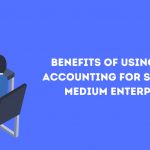Guide to Accounting for Real Estate
As a real estate business owner, it’s essential to understand the Real Estate development accounting principles and practices for your industry. Proper accounting not only helps you track your financial performance, but it also helps you make informed business decisions, plan for future growth, and comply with regulatory requirements. In this post, we will provide you with a guide to accounting for real estate businesses.
While real estate deals are often quite complicated, actual accounting is comparatively easy. Let’s break it down here:-
There are two key questions that you need to ask yourself to do the accounting properly for your real estate acquisition:-
- Are you developing or flipping a property for a future sale? Or,
- Do you own the property for rental income?
If you develop real estate, the primary focus should be on the balance sheet of your financial statements. On the other hand, if you develop or own the property of rental income, your primary focus should be on your profit & loss account.
Just to be precise – both real estate activities will have a balance sheet and profit & loss accounts. However, the main difference lies in the focus area, which will change based on the purpose of use. Here we are discussing a complete guide to Real Estate Development Accounting.

Real Estate Development Accounting:
Real estate development accounting is concerned with two things – acquisition and asset, i.e., land or building development or remodelling for future sales or rental. Developers usually use the balance sheet to keep track of their development or renovation costs. The key accounts that you should be focusing on include:-
- Accounts Payable
- Cash Accounts
- CIP (Construction in Progress) or WIP (Work in Progress) Accounts
- Deposit Receivables
- Equity Accounts
- Long term Debt
- Retainage Payable
- Short term Debt
Moreover, you can then establish the profit & loss account once the property development is complete and is either sold or ready for renting.
Accounting For Land Development:
Accounting for land development involves the process of recording and reporting the financial transactions related to the acquisition, preparation, and sale of land for development purposes. Here are some key points to consider:
- Land development costs, such as site preparation, construction of infrastructure, and environmental assessments, should be recorded as expenses when incurred.
- Land that is held for development purposes should be recorded at its cost, which includes the purchase price and any direct costs associated with the acquisition.
- When land is sold, the revenue should be recognized and the cost of the land and any associated expenses should be subtracted to determine the profit or loss on the sale.
- If a development project incurs losses, they should be recognized in the financial statements in the period they are identified.
Bookkeeping for Real Estate Developers: Manage Finances with Accuracy
Balance Sheet Accounts to Focus on If you are Building and Planning to Sell
- Sales – The sale price of the property or unit.
- COGS (Cost of Goods Sold) – Total construction is broken down by per square footage or actual cost.
Most developers rely strongly on a job costing accounting system. For such developers, the essential accounts will be CIP (Construction in Progress) or WIP (Work in Progress) accounts.
Hard Costs Vs. Soft Costs
To paraphrase, in land development accounting, hard costs include construction costs that are associated with the actual physical construction of the property. On average, these costs add up to a total of 75-80% of the total costs. A few examples of hard costs include:-
- Hazardous Material Abatement
- Masonry
- Doors & Window
- Finishes (Plaster and Drywall, Flooring)
- Equipment like the trash system, loading dock equipment and conveying systems, etc.
Soft costs, on the other hand, are part of the overall development project but are not tied to the actual physical construction. These are more concerned with consultants, architects, and the planning of the project. Check out our calculator.

Fit Your Accounting Needs to Your Business
Simply put, this guide can get you started on your real estate development and acquisition accounting. But, you may need the guidance of an expert to hold the accounting structures together. So, get in touch with a professional accountant or refer to an online accounting service for fulfilling your real estate accounting needs based on the type of your business.
In conclusion, accounting for Real Estate development costs is an essential part of running a successful real estate business. It helps your real estate business in many terms. By understanding the accounting principles and practices for your industry, you can make informed business decisions, plan for future growth, and comply with regulatory requirements. Use the tips outlined in this guide to ensure that your real estate accounting is accurate, timely, and compliant.


